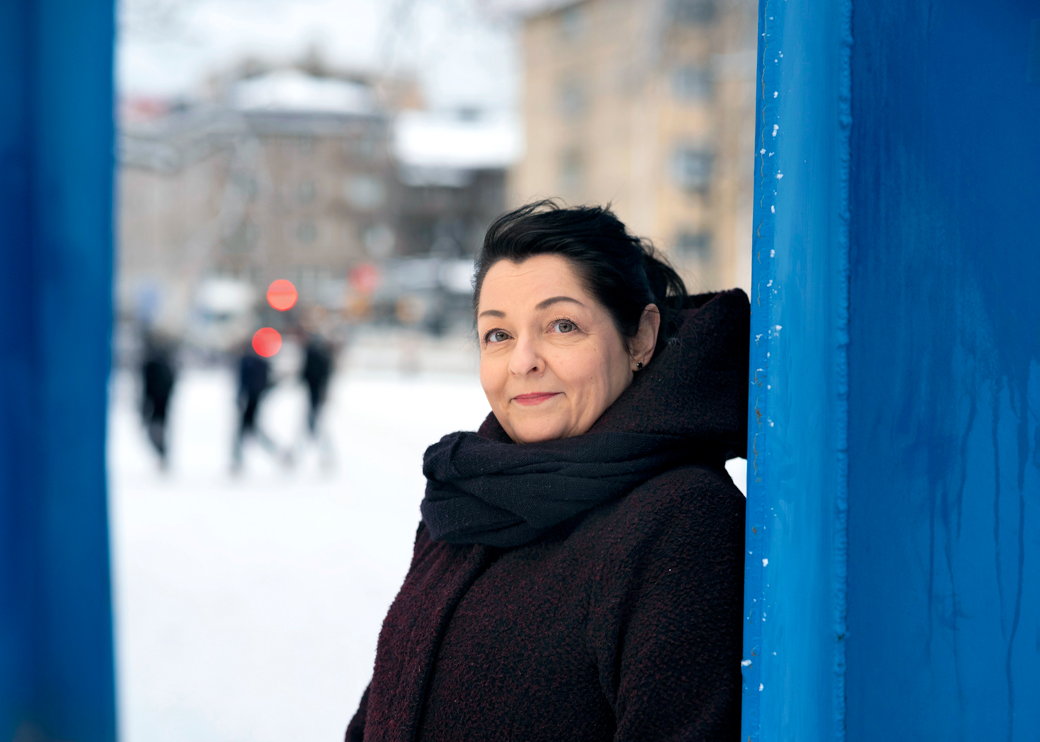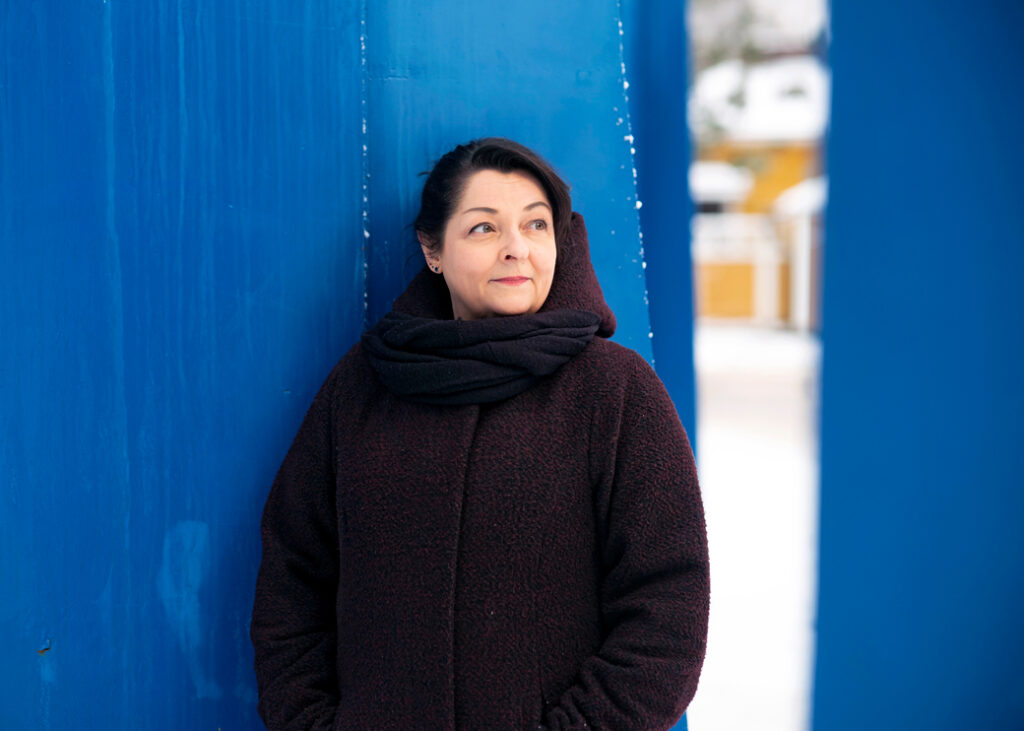
Against hate speech
Academic of the Year Tuija Saresma has put herself on the line many times for her study of hate speech. Often with confusing results.
Text tiina huokuna Images petteri kivimäki Translation Marko saajanaho
She has promoted the freedom of research, gained significant results, and found herself a target of a carefully organised hate campaign multiple times.
University lecturer and Doctor of Philosophy Tuija Saresma, chosen as the Academic of the Year, does not hesitate to highlight the effects of hate speech on researchers, science, and society.
“Hate speech towards researchers is so common today that many choose less hot subjects for their research. This has been going on for years”, she says.

FUURT President Maija S. Peltola emphasises the important of finding researchers with the courage and will to address politically sensitive subjects and bring them forth to public discourse. That helps recognise the big picture in a way that clarifies what hate speech can mean for science and the democratic structure of society.
Logical continuation to a research career
Saresma is a docent of Contemporary Culture Research at the Jyväskylä University. In addition, she is a docent of Gender Studies at the University of Helsinki and a docent of Cultural Studies, especially Gender Studies at the University of Eastern Finland.
“I didn’t consciously choose to pursue these subjects even though the path seems obvious now. I was interested in research related to gender and equality, and that was the reason things started rolling and building momentum about 20 years ago already.”
For example, she has conducted two studies for the government, one of which researched the effects of hate speech on social decision-making. The subject of the other study is the operating methods and motives of producers and spreaders of hate speech.
Saresma points out that these reports do not represent the end point of the research and instead serve as basis for academic research. Peer-reviewed articles and more subtle conceptual work is forthcoming as well.
Critical themes trigger messages
Saresma notes that hate speech is an unfortunate part of research-related journalism. She has also discovered first-hand that talking in media often causes targeted harassment towards an individual. This means group abuse or harassment online. The person being targeted may receive thousands of insulting messages based on a single interview.
For example, subjects related to antifeminism, populism, and racism often attract agitated comments. Challenging the traditional family model often leads to targeted harassment.
“Hate mail is common when you talk about life arrangements other than the woman and the man with the nuclear family.”
Food-related questions can also be sensitive topics and provoke angry or hostile feedback. Vegetarian food is at the centre of the angry discourse.
“Food is associated with so many emotions these days that it is hard to cover without someone getting offended.”
Serious hate speech also makes itself known in journalistic work. Journalists writing about so-called sensitive subjects have received their share of hate mail. According to the 10/2022 issue of the Journalisti magazine, anonymous interviews have increased in the press because anonymity protects the interviewees from social media storms.
Rocks thrown at the window
Hatred towards researchers is not a new phenomenon by any means. It is said even Galileo Galilei had rocks thrown at his window as a result of his astrology and physics discoveries in the late 1500s to early 1600s.
Nowadays, this hatred can be efficiently and massively targeted towards a specific topic or specific researchers. According to Saresma, this group of abusers is small but effective. Groups of different abusers also cooperate with each other.
Targeted harassment to be punishable
Hate speech attempts to achieve dangerous things. The goal is to direct social discourse in a direction approved by the ones responsible for the hate speech. This threatens the atmosphere of trust and eventually leads to questioning democracy.
“In the US, this has gone so far that schools are not allowed to teach evolution, for example. There are signs that some seek to restrict what is taught at schools here as well.”
Legislation on targeted harassment and its criminalisation is on the way. Currently, the proposal is undergoing consultation. Akava, for example, has been strongly pushing the legislation forward.
Tuija Saresma believes it is important to make targeted harassment, i.e., systematic online abuse to become a criminal offence. According to her, the phenomenon is clearly spreading to journalism, officials, academia, and school. This impugns freedom of speech and democratic decision-making.
.

